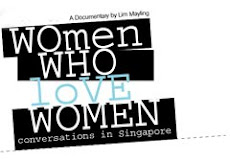Singapore is Asia's new gay capital Singapore
Singapore is slowly emerging as Asia's gay entertainment hub, with a slew of gay-friendly clubs, saunas, restaurants and fashion outlets appearing in the city state over the past three years.
The conservative country, better known for the government's tight rein on social values, is now the focus of "enormous buzz and excitement" for Asia's gay community, said Stuart Koe, the chief executive of leading regional gay website Fridae.com.
Koe told AFP Singapore's reputation as a shopping haven, combined with a burgeoning club scene and the proliferation of entertainment venues catering for gays contributed to the lure of Singapore. "Gays enjoy the entertainment scene of clubbing and shopping, so Singapore has the potential draw for such tourists," Koe said. "Singapore's previous image was a conservative and strict society where you get caned, you cannot chew gum and jaywalk, but people are now hearing how fun it can be... the momentum is only going to build with positive roll-offs.
"Mainstream tourists will hear about Singapore from gays, and how it is a lot more hip." And although homosexual acts are still outlawed, Prime Minister Goh Chok Tong signalled his government's increasingly tolerant approach to the issue by announcing this year that gays are allowed to work in the civil service.
One event that is fast becoming a signature celebration for gays in Singapore and elsewhere in the region is the Nation party. Held on the eve of the city-state's national day holiday in August, it is increasingly being regarded as Asia's answer to the gay Mardi Gras events in Western countries. Only in its third year, Nation03 attracted 5,000 revellers last month, twice as many as Nation02, including 1,200 foreigners who were mostly from Asian countries. "Those that came to Nation had a good time. They were from places like Taiwan, Japan, Korea and knew about the event through word-of-mouth," Koe said. "Travellers are of the same breed, those who are able to travel have a certain level of disposable income... gays tend to spend more money on their travels and appreciate the finer things of life." There are many gay clubs and bars in Singapore, many of which are in the central business district.
The hottest place to be on Fridays and Saturdays is the Taboo bar, while Sundays have traditionally been gay club nights at Centro, a popular nightclub that supermodel Naomi Campbell visited on a tour here last week. Aside from the nightclubs, Koe said there were about 20 karaoke bars and saunas that catered for gays in Singapore.
While there were some places a few years ago, there are many more now and they operate much more openly, he said. Masters graduate Sam Chan, 28, goes to many of the gay clubs and says that while he and his friends are still conscious of the conservative nature of Singapore's society, they are enjoying the increasing freedom. "Being gay in Singapore is an underground business where things are spread by word of mouth, but with the proliferation of the Internet, you get to know about gay-friendly clubs and restaurants,"
Chan told AFP. He said he has many foreign friends "who think it is getting exciting here" and locals can finally find shops that cater to their needs. "I have (Singaporean) friends who used to have to go to Bangkok to shop for clothes and go clubbing there," Chan said. Koe agreed that Bangkok used to be the undisputed gay capital but said it has lost its shine after Thai Prime Minister Thaksin Shinawatra clamped down on the entertainment industry with bars being forced to close at 2:00 am. In contrast, the Singapore governnent this year relaxed entertainment laws by expanding the number of bars that are allowed to open 24 hours a day. Koe said mainstream businesses in Singapore were also gradually becoming more open about pitching their products and services to gays, with the pink dollar industry tipped to boom over the next five years. "The pink dollar in Singapore definitely exists. It is not a myth, it is a fact," Koe said, adding there were businesses with 40 percent of clients who were gay.
AFP: Singapore is Asia's new gay capital Singapore
Sunday, September 14, 2003
Posted by Charm at 10:27 PM 0 comments
Subscribe to:
Posts (Atom)





